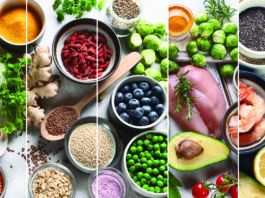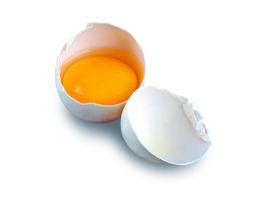Q: Ive heard a lot about arthritis sufferers consuming ginger to reduce inflammation and...
Answer :Although ginger seems to be effective against nausea and vomiting, especially that related to pregnancy, the jury is still out on the medicinal use of this popular cooking ingredient against arthritis symptoms. One 2005 study did show anti-inflammatory effects for ginger. But a 2007 review of the medical literature concluded that the results on ginger for the treatment of arthritis are mixed. The National Center for Complementary and Alternative Medicine (NCCAM), which is currently…
Q: In your November 2007 issue, you said that experts prescribe strength training for...
Answer :An excellent starting point is the Growing Stronger: Strength Training for Older Adults program, developed by experts at Tufts and the Center for Disease Control and Prevention. Growing Stronger is an exercise program based upon sound scientific research involving exercises that have been shown to increase the strength of your muscles, maintain the integrity of your bones, and improve your balance, coordination and mobility. At the Web site growingstronger.nutrition.tufts.edu you can jump right into…
Q:I have been hearing about cinnamon as a cure or at least a treatment...
Answer :A 2003 study of 60 people with type 2 diabetes did find that intake of one to six grams of cinnamon daily improved blood glucose levels, as well as lipid factors (such as cholesterol) important to cardiovascular disease. Subsequent research on possible benefits for diabetics from the popular spice, however, have been disappointing. Most recently, two reviews of the scientific literature both came to similar negative conclusions: Based on the currently available evidence, cinnamon…
Q: Whats the safe level of daily vitamin D? Is it different for older...
Answer :The recommended intake of vitamin D-but not the safe limit-does increase with age: The Institute of Medicine has set the daily adequate intake for adults ages 19 to 50 at 200 IU of vitamin D, for ages 51 to 70 at 400 IU, and for those older than age 70 at 600 IU. Many experts, however, argue that those levels should be raised, and research has shown that 800 to 1,000 IU daily may…
Q: I am enclosing an article from a local newspaper warning people to avoid...
Answer :The article in question warns about the dangers of mercury and other contamination in tuna and other fish, concluding that Fish is anything but health food. While its wise to be wary of potential toxins in fish, the consensus of scientists who have examined the evidence-as opposed to taking an ethical stand, as PETA does, that animals are not to eat-is that fish is in fact one of the healthiest foods you can include…
Q: Is much of the omega-3 lost when the skin of the salmon is...
Answer :According to Alice H. Lichtenstein, DSc, director of the Cardiovascular Nutrition Laboratory at Tufts Jean Mayer USDA Human Nutrition Research Center on Aging, much of salmons healthy omega-3 fatty acids lie just under the skin. Comparing total omega-3s for the same variety of salmon in different preparations using the USDAs Nutrient Database, salmon without the skin contains only 39% to 64% of the omega-3s in the same portion of salmon with the skin. But…
Q: I have been told that the sugar substitute Splenda is unhealthy due to...
Answer :Its true that Splenda is made using chlorine, which sounds scary; the sugar industry warns that youre actually eating chlorine when consuming sucralose, the chemical sold as Splenda. Plain sugar is transformed into sucralose by substituting three chlorine atoms for hydrogen, creating a substance that is not digested by the body-so its effectively caloriefree- and thats 600 times sweeter than sugar. (Packaged Splenda also contains dextrose and maltodextrin as bulking agents.) But theres no…
Q: How does tapioca rate nutritionally? Does it fall under the refined food category?...
Answer :People have been eating tapioca at least since the heyday of the Mayans, who first figured out how to process the root of the cassava plant (also called manioc or yuca) to eliminate its naturally occurring cyanide. Technically, yes, tapioca is a refined food in the sense that the packaged tapioca you buy is made from reconstituted, processed root; being a root starch, rather than a grain, however, theres no such thing as whole…
Q: I read a report recently indicating that all nuts contain monosaturated fat. I...
Answer :All popular nuts contain both types of fat- and the good news is that both mono- and polyunsaturated fat are heart-healthy compared to saturated and trans fats. According to the American Heart Asso ciation, Monounsaturated fats and polyunsaturated fats appear to not raise LDL cholesterol; some studies suggest they might even help lower LDL cholesterol slightly when eaten as part of a low-saturated and trans-fat diet. Each type of nut does differ in its…
Q: When nutritionists talk about walnuts, do they mean black or English walnuts?
Answer :According to the California Walnut Board, a trade association, the walnuts you buy in stores-and those most commonly touted for nutritional benefits-




























